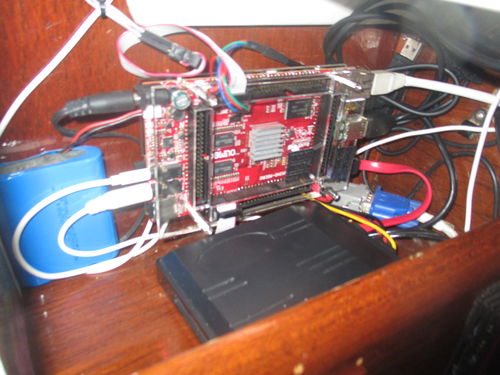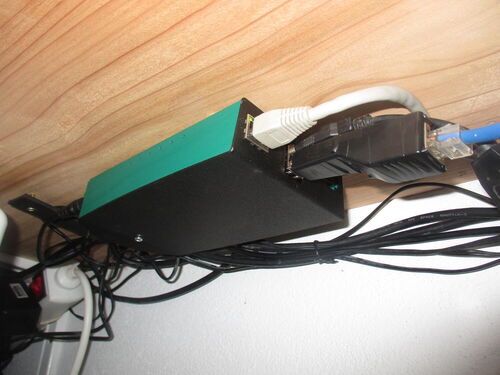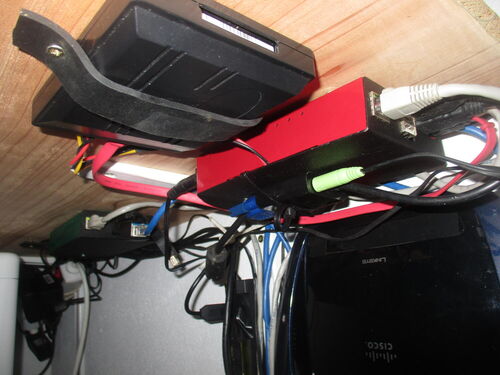It's nice to do things yourself instead of asking somebody else to do them, at least that's how I feel regarding IT, so when first heard about cheap embedded computers that would run FreeBSD couldn't resist to buy one to experiment with it.
In fact, in that time (2015) I did have a good excuse for it because I lived in a sailing boat and needed a small and silent computer that could be working 24x7 without draining the boat's batteries.
After some research I decided on the Olimex A20 micro because it was Open Hardware, made in Bulgaria (EU) with a chinese CPU (AllWinner) and had plenty of connectors to plug everything you possibly could need.
Once installed in the boat it looked like this, the black box is a 1TB hard disk, and the blue pack an external battery:

The truth is that it took me much more time than expected to make it work in a reliable and stable way, the official Linux images (Debian 7) were fine but a little bit obsolete and didn't feel like upgrading to Debian 8 or Ubuntu, then precompiled FreeBSD images would hang after a few hours, so I had to make my own images using crochet, which in the long run proved to be a good thing because I learned much valuable knowledge along the way... but it did take time.
This is the "plan" of what I intended to do with the computer:
I did implement most of it but the satellite connection (crazy expensive), the GPIO sensors (didn't really need them) and the on board buttons (I had a real keyboard).
So on the whole was a very positive experience, it was working 24x7 aboard for 2 years and a half, with uptimes of several months without problems, and once the boat was sold, installed it in my home as backup server and multimedia player among other uses.
I even bought an identical board for building a proper router with PF firewall, which also serves as my secondary DNS and email server, I know it looks too much DIY, but it has been working flawlessly for years:

One of the biggest advantages of this setup is to be able to use the same OS in all of your devices, in my case: 2 laptops, 1 netbook, 2 servers and these 2 little devices:

That way you can have the very same software packages and procedures everywhere without any extra effort, what works in one device works in all of them.